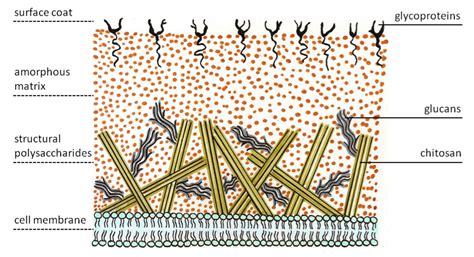
A potentially dangerous fungus, Exophiala dermatitidis, has been discovered in espresso machines and other coffee-making equipment in homes and cafes, raising concerns about potential health risks, particularly for individuals with compromised immune systems. Researchers expressed alarm at the fungus’s prevalence and resilience, highlighting its ability to thrive even in high-temperature environments.
The findings, published in the journal Emerging Infectious Diseases, detailed how scientists analyzed samples from various coffee machines and found that Exophiala dermatitidis was a common inhabitant. “We were horrified to see it,” said Dr. Valeria Silva, lead researcher of the study. “This fungus is not something you want to find lurking in your daily coffee.”
Exophiala dermatitidis is known to cause infections in humans, ranging from skin problems to more serious systemic diseases. Though rare, these infections can be life-threatening, especially for those with weakened immune systems such as transplant recipients or individuals with HIV/AIDS.
The fungus’s ability to survive in hot water and its tolerance to common cleaning agents make it particularly challenging to eradicate from coffee machines. The researchers recommend regular and thorough cleaning of coffee machines, including descaling and dismantling components, to minimize the risk of contamination.
The study has prompted calls for greater awareness among consumers and coffee shop operators regarding the importance of hygiene and maintenance of coffee-making equipment. Health officials are also urging further research to assess the true extent of the risk posed by Exophiala dermatitidis and to develop more effective strategies for preventing its spread.
Details of the Discovery
The team of researchers embarked on the study to investigate the microbial flora present in coffee machines, hypothesizing that these appliances could harbor a variety of microorganisms due to their warm, moist environments. The study involved collecting samples from both domestic and commercial coffee machines across several locations. Samples were taken from various parts of the machines, including water reservoirs, drip trays, and espresso-making components.
“We focused on areas that are typically damp and difficult to clean,” explained Dr. Silva. “These are the ideal breeding grounds for fungi and bacteria.”
The collected samples were then subjected to rigorous laboratory analysis, including culturing and DNA sequencing, to identify the microorganisms present. The results revealed a diverse array of bacteria and fungi, but the presence of Exophiala dermatitidis stood out due to its known pathogenicity.
“What surprised us was not just the presence of fungi, but the prevalence of this particular species,” said Dr. Mark Thompson, a microbiologist involved in the study. “It was found in a significant proportion of the machines we tested.”
Further testing showed that Exophiala dermatitidis could withstand high temperatures, a characteristic that allows it to survive the brewing process. The fungus also exhibited resistance to some common cleaning agents, making it difficult to eliminate with routine cleaning.
“This fungus is quite resilient,” noted Dr. Silva. “It can tolerate conditions that would kill many other microorganisms.”
Health Risks Associated with Exophiala dermatitidis
Exophiala dermatitidis is a black yeast-like fungus that is commonly found in soil, water, and decaying organic matter. It is also an opportunistic pathogen, meaning that it can cause infections in humans, particularly those with weakened immune systems.
Infections caused by Exophiala dermatitidis can manifest in various ways, depending on the site of infection and the individual’s immune status. Common symptoms include skin lesions, subcutaneous nodules, and nail infections. In more severe cases, the fungus can invade internal organs, leading to systemic infections such as pneumonia, meningitis, and endocarditis.
“While infections are rare in healthy individuals, they can be devastating for those with compromised immune systems,” cautioned Dr. Thompson. “The mortality rate for systemic infections can be quite high.”
Individuals at higher risk of developing Exophiala dermatitidis infections include:
- Organ transplant recipients
- Patients with HIV/AIDS
- Individuals undergoing chemotherapy
- Patients with cystic fibrosis
- People with indwelling catheters
The diagnosis of Exophiala dermatitidis infections can be challenging, as the fungus is slow-growing and can be difficult to identify in clinical samples. Treatment typically involves antifungal medications, but the fungus can be resistant to some drugs, making treatment difficult.
Implications for Coffee Consumption
The discovery of Exophiala dermatitidis in coffee machines raises concerns about the potential for exposure to the fungus through coffee consumption. While the risk of infection is low for healthy individuals, the researchers caution that repeated exposure could increase the risk, particularly for those with underlying health conditions.
“We don’t want to alarm people unnecessarily,” said Dr. Silva. “But it’s important to be aware of the potential risk and take steps to minimize exposure.”
The researchers recommend the following measures to reduce the risk of Exophiala dermatitidis contamination in coffee machines:
- Regular cleaning: Clean coffee machines thoroughly and regularly, following the manufacturer’s instructions.
- Descaling: Descale coffee machines regularly to remove mineral buildup that can harbor fungi.
- Disassembling components: Disassemble and clean all removable components of the coffee machine, including water reservoirs, drip trays, and espresso-making components.
- Using filtered water: Use filtered water to reduce the risk of introducing contaminants into the coffee machine.
- Proper storage: Store coffee beans and grounds in airtight containers in a cool, dry place to prevent fungal growth.
- Professional cleaning: Consider professional cleaning services for coffee machines, especially in commercial settings.
Expert Opinions and Industry Response
The findings of the study have been met with concern by health experts and the coffee industry.
“This study highlights the importance of hygiene in food preparation and beverage making,” said Dr. Emily Carter, an infectious disease specialist at a leading hospital. “Consumers need to be aware of the potential risks and take steps to protect themselves.”
The Specialty Coffee Association (SCA), a trade organization representing the coffee industry, issued a statement acknowledging the findings of the study and urging its members to implement strict hygiene and maintenance protocols.
“We take these findings very seriously,” said a spokesperson for the SCA. “We are committed to working with our members to ensure that coffee is prepared and served in a safe and hygienic manner.”
Several coffee shop chains have already begun to implement enhanced cleaning procedures in response to the study. Some are also considering using antimicrobial coatings on coffee machine components to prevent fungal growth.
“We want to assure our customers that we are taking every precaution to ensure the safety of our coffee,” said a representative for a major coffee chain. “We are implementing enhanced cleaning protocols and working with our suppliers to ensure that our coffee beans and equipment are free from contamination.”
The Future of Coffee Machine Hygiene
The discovery of Exophiala dermatitidis in coffee machines has highlighted the need for greater awareness and research on coffee machine hygiene. Further studies are needed to assess the true extent of the risk posed by the fungus and to develop more effective strategies for preventing its spread.
Researchers are also exploring the use of new technologies to improve coffee machine hygiene. These include:
- Self-cleaning coffee machines: Coffee machines that automatically clean and disinfect themselves.
- Antimicrobial materials: Using materials with antimicrobial properties in coffee machine construction.
- UV disinfection: Using ultraviolet (UV) light to disinfect coffee machine components.
- Probiotic cleaning: Using beneficial bacteria to outcompete harmful fungi and bacteria.
“We are confident that with increased awareness and continued research, we can minimize the risk of fungal contamination in coffee machines and ensure that coffee remains a safe and enjoyable beverage,” concluded Dr. Silva.
Frequently Asked Questions (FAQ)
1. What is Exophiala dermatitidis?
Exophiala dermatitidis is a black yeast-like fungus found in various environments, including soil, water, and decaying organic matter. It’s an opportunistic pathogen, meaning it can cause infections in humans, particularly those with weakened immune systems. It’s known for its ability to withstand high temperatures and certain cleaning agents, making it resilient in coffee-making environments.
2. How does Exophiala dermatitidis get into coffee machines?
The fungus can enter coffee machines through various sources, including contaminated water, coffee beans, and even the air. The warm, moist environment inside coffee machines, especially in areas that are difficult to clean, provides an ideal breeding ground for the fungus to proliferate. Inadequate cleaning and descaling further contribute to its growth.
3. What are the health risks associated with Exophiala dermatitidis in coffee machines?
While infections are rare in healthy individuals, Exophiala dermatitidis can cause a range of infections, from skin lesions and nail infections to more severe systemic diseases like pneumonia, meningitis, and endocarditis in individuals with compromised immune systems. The fungus can be difficult to treat due to its resistance to some antifungal medications.
4. How can I prevent Exophiala dermatitidis contamination in my coffee machine?
To minimize the risk of contamination, it’s essential to clean your coffee machine thoroughly and regularly, following the manufacturer’s instructions. This includes descaling, disassembling and cleaning removable components, using filtered water, storing coffee beans properly, and considering professional cleaning services, especially for commercial machines.
5. What should coffee shops do to address the risk of Exophiala dermatitidis in their machines?
Coffee shops should implement strict hygiene and maintenance protocols, including enhanced cleaning procedures, regular descaling, and potentially using antimicrobial coatings on coffee machine components. It’s crucial to ensure that all staff are trained on proper cleaning and maintenance procedures and that these procedures are consistently followed. Regular inspections and testing can also help identify and address potential contamination issues.
Expanded Context and In-Depth Analysis
The discovery of Exophiala dermatitidis in coffee machines extends beyond a simple hygiene concern. It delves into the complexities of microbial ecology within domestic and commercial appliances, highlighting the unexpected reservoirs of potentially pathogenic organisms in our everyday lives. This finding adds a new dimension to our understanding of environmental microbiology and its impact on human health.
The Broader Microbial Landscape of Coffee Machines
While Exophiala dermatitidis has taken center stage due to its potential pathogenicity, it’s crucial to recognize that coffee machines, like many other appliances, harbor a diverse community of microorganisms. Bacteria, yeasts, and other fungi can thrive in the warm, moist, and nutrient-rich environment created by coffee brewing. Some of these microorganisms are harmless, while others can contribute to spoilage or pose health risks.
The specific microbial composition of a coffee machine can vary depending on factors such as the type of machine, the frequency of use, the quality of water used, and the cleaning and maintenance practices employed. Studies have identified a wide range of bacteria, including Pseudomonas, Acinetobacter, and Bacillus, as well as various species of yeast and mold.
Understanding the broader microbial ecology of coffee machines is essential for developing effective strategies to control the growth of harmful microorganisms like Exophiala dermatitidis. This requires a holistic approach that considers the interactions between different microbial species and the environmental factors that influence their growth.
The Role of Biofilms in Fungal Persistence
One of the key challenges in eradicating Exophiala dermatitidis from coffee machines is its ability to form biofilms. Biofilms are complex communities of microorganisms that adhere to surfaces and are encased in a matrix of extracellular polymeric substances (EPS). This matrix provides protection from environmental stressors, such as heat, desiccation, and cleaning agents, making biofilms highly resistant to eradication.
Exophiala dermatitidis is known to form biofilms on various surfaces, including stainless steel, plastic, and glass, which are commonly used in coffee machine construction. These biofilms can serve as a reservoir for the fungus, allowing it to persist even after cleaning and disinfection.
Strategies to combat biofilms include:
- Mechanical removal: Physically scrubbing or brushing surfaces to remove biofilms.
- Enzymatic degradation: Using enzymes to break down the EPS matrix of biofilms.
- Antimicrobial agents: Employing antimicrobial agents that can penetrate biofilms and kill the microorganisms within.
- Surface modification: Modifying surfaces to prevent biofilm formation.
The Impact of Water Quality on Microbial Growth
The quality of water used in coffee machines plays a significant role in microbial growth. Tap water can contain minerals, organic matter, and other contaminants that can provide nutrients for microorganisms and contribute to scale buildup. Scale buildup can create rough surfaces that are conducive to biofilm formation and can also trap microorganisms, making them more difficult to remove.
Using filtered water can reduce the risk of introducing contaminants into the coffee machine and can also minimize scale buildup. Different types of water filters are available, including activated carbon filters, reverse osmosis filters, and ion exchange filters. Each type of filter has its own advantages and disadvantages in terms of cost, effectiveness, and maintenance requirements.
The Importance of Regular Descaling
Descaling is the process of removing mineral deposits from coffee machines. Mineral deposits, such as calcium and magnesium, can accumulate over time due to the use of hard water. These deposits can not only affect the performance of the coffee machine but can also provide a breeding ground for microorganisms.
Regular descaling is essential for maintaining the hygiene and performance of coffee machines. Descaling can be done using commercially available descaling solutions or with household ingredients such as vinegar or citric acid. It’s important to follow the manufacturer’s instructions when descaling a coffee machine to avoid damaging the appliance.
Commercial vs. Home Coffee Machines: A Comparative Look
While the study examined both commercial and home coffee machines, there are key differences in their design, usage, and maintenance that can influence the risk of Exophiala dermatitidis contamination.
- Frequency of use: Commercial coffee machines are typically used much more frequently than home coffee machines, which can lead to a greater accumulation of organic matter and microorganisms.
- Complexity of design: Commercial coffee machines often have more complex designs with intricate components that are difficult to clean, creating more potential harborage sites for fungi and bacteria.
- Cleaning and maintenance protocols: Commercial coffee shops typically have more stringent cleaning and maintenance protocols than home users, which can help to mitigate the risk of contamination. However, compliance with these protocols can vary.
- Water quality: Commercial coffee shops may use water filtration systems to improve water quality, while home users may rely on tap water, which can vary in quality depending on the location.
These differences highlight the need for tailored hygiene and maintenance strategies for commercial and home coffee machines. Commercial coffee shops should prioritize rigorous cleaning and maintenance protocols, regular inspections, and staff training. Home users should focus on regular cleaning, descaling, and using filtered water.
The Role of Material Science in Preventing Contamination
The materials used in coffee machine construction can also influence the risk of Exophiala dermatitidis contamination. Some materials are more resistant to biofilm formation than others, and some materials can even exhibit antimicrobial properties.
Stainless steel is a commonly used material in coffee machines due to its durability, corrosion resistance, and ease of cleaning. However, stainless steel can still be susceptible to biofilm formation.
Newer materials with antimicrobial properties are being explored for use in coffee machines. These include:
- Copper: Copper has inherent antimicrobial properties and can inhibit the growth of bacteria and fungi.
- Silver: Silver nanoparticles can be incorporated into materials to provide antimicrobial activity.
- Antimicrobial coatings: Coatings containing antimicrobial agents can be applied to surfaces to prevent microbial growth.
The use of antimicrobial materials in coffee machines could provide an additional layer of protection against Exophiala dermatitidis contamination.
Beyond Coffee Machines: Other Potential Sources of Exposure
While the study focused on coffee machines, it’s important to recognize that Exophiala dermatitidis can be found in other environments as well. The fungus is commonly found in soil, water, and decaying organic matter. It can also be found in indoor environments, such as bathrooms and kitchens.
Exposure to Exophiala dermatitidis can occur through various routes, including:
- Inhalation of airborne spores
- Direct contact with contaminated surfaces
- Ingestion of contaminated food or water
While the risk of infection from environmental exposure is low for healthy individuals, it’s important to maintain good hygiene practices to minimize exposure. This includes:
- Washing hands regularly
- Cleaning and disinfecting surfaces
- Avoiding contact with contaminated water or soil
The Need for Further Research and Public Awareness
The discovery of Exophiala dermatitidis in coffee machines highlights the need for further research on the microbial ecology of domestic and commercial appliances. More studies are needed to:
- Assess the prevalence of Exophiala dermatitidis in different types of coffee machines and in different geographic locations.
- Investigate the factors that influence the growth and survival of Exophiala dermatitidis in coffee machines.
- Evaluate the effectiveness of different cleaning and disinfection methods for eradicating Exophiala dermatitidis.
- Determine the true risk of infection from exposure to Exophiala dermatitidis through coffee consumption.
In addition to research, there is a need for greater public awareness about the potential risks associated with Exophiala dermatitidis and other microorganisms in coffee machines. Consumers need to be educated about the importance of regular cleaning and maintenance and the steps they can take to minimize their risk of exposure.
The Ethical Considerations
The presence of potentially harmful fungi in widely used appliances like coffee machines brings forth ethical considerations for manufacturers, retailers, and public health organizations.
-
Transparency and Disclosure: Should manufacturers be required to disclose the potential for fungal growth in their products? This could involve adding warnings or instructions on how to mitigate risks.
-
Design and Materials: Do manufacturers have a responsibility to design products that minimize the risk of microbial growth? This could involve using specific materials or designing components that are easier to clean and disinfect.
-
Public Education: What is the role of public health organizations in educating the public about the potential risks of fungal contamination in household appliances and providing guidance on how to minimize these risks?
-
Regulation and Standards: Should there be regulations or industry standards for the hygiene of coffee machines and other similar appliances? This could involve setting limits on the levels of certain microorganisms or requiring manufacturers to meet certain design and performance criteria.
-
Balancing Risk and Benefit: How do we balance the potential risks of fungal contamination with the benefits of using coffee machines and other appliances? It’s important to avoid creating unnecessary alarm while still providing consumers with the information they need to make informed decisions.
Conclusion
The discovery of Exophiala dermatitidis in coffee machines is a wake-up call to the importance of hygiene and maintenance in our daily lives. While the risk of infection is low for healthy individuals, the potential for serious health consequences, particularly for those with weakened immune systems, warrants attention. By implementing proper cleaning and maintenance practices, using filtered water, and staying informed about the latest research, we can minimize the risk of Exophiala dermatitidis contamination and ensure that coffee remains a safe and enjoyable beverage. Continuous research and development into better cleaning technologies and antimicrobial materials will further safeguard public health.









